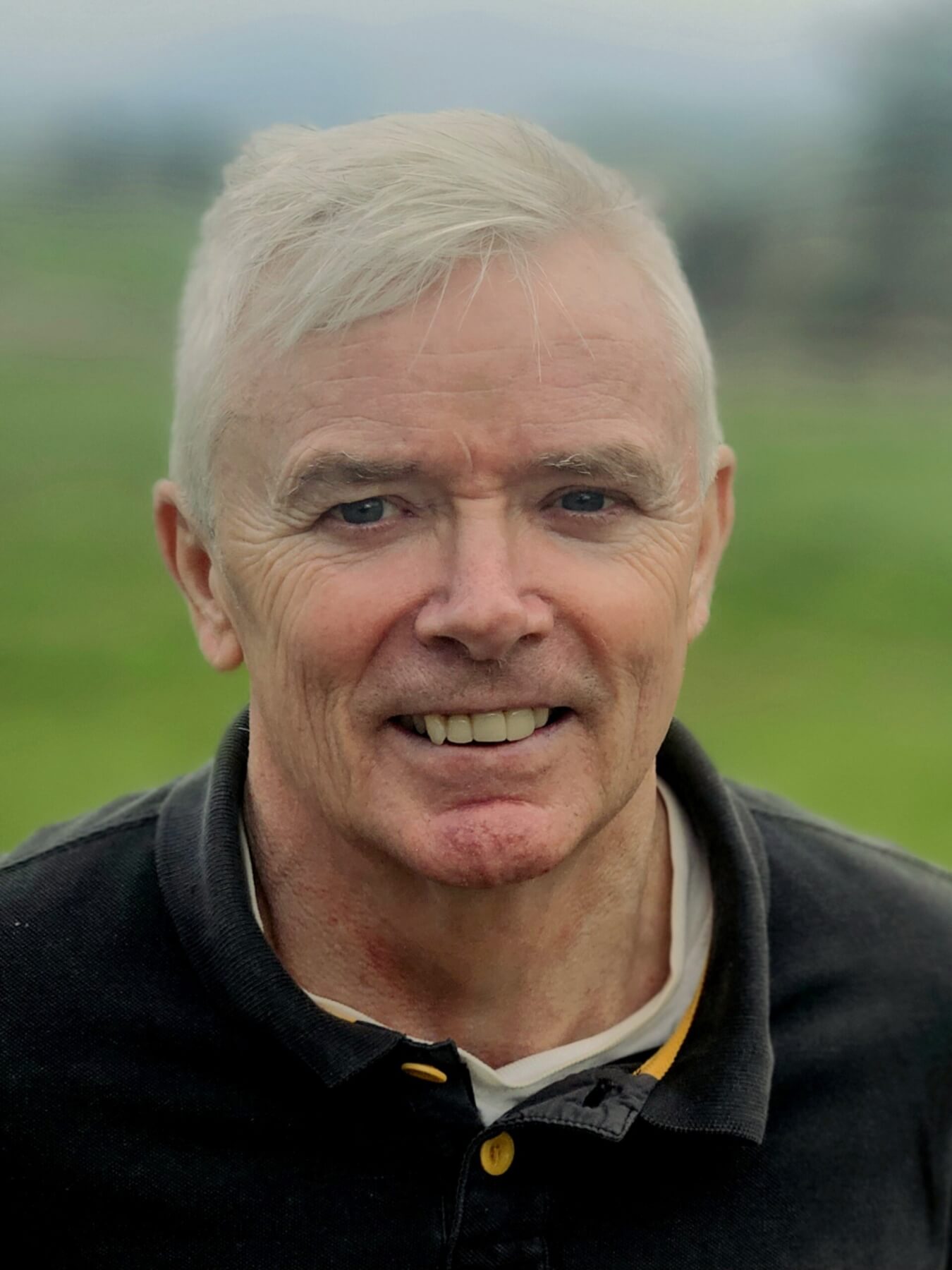
Cambridge ward

Stuart Hylton – 2025
Stuart Hylton – Cambridge Ward
1. Operational Deficits and Borrowing (maximum 100 words)
Waipā is currently running operational deficits over three years, which reduces the annual rates increase by around 4%. To fund this gap, the council is borrowing an average of $8 million per year.
a. Were you aware of this funding strategy?
Yes, but only through recent articles in the newspaper
b. Do you agree with the approach of borrowing to fund operational shortfalls as prudent rather than raising rates to fully fund current operations? Why or why not?
No, I don’t agree with borrowing to fund operational deficits. Borrowing for core infrastructure that benefits future generations is one thing, but using debt to cover day-to-day running costs is like putting the groceries on the credit card. Unsustainable and unfair. Waipā needs to live within its means by cutting wasteful spending, delivering the basics well, and restoring accountability. Ratepayers deserve lower rates driven by smarter management, not short-term fixes that push today’s problems onto tomorrow’s residents.
2. Ahu Ake – Waipā Community Spatial Plan (maximum 100 words)
The council has adopted the “Ahu Ake – Waipā Community Spatial Plan” as a long-term vision to guide growth and infrastructure planning.
a. Do you support the direction and priorities set out in Ahu Ake?
b. Given that the plan proposes a number of costly studies how would you ensure that it remains relevant, affordable, and aligned with community needs over time?
No, I don’t support Ahu Ake in its current form. While planning for the future is important, Waipā has spent millions on glossy strategies instead of fixing the basics. Ratepayers cannot afford costly studies that deliver little real value. Any long-term plan must be affordable, practical, and focused on infrastructure that supports real growth, like roads, water, and a third bridge for Cambridge. As an ACT Local candidate, I will push to cut waste, ensure plans are grounded in reality, and hold council accountable so ratepayers see value for every dollar spent.
3. Cambridge Connections (maximum 100 words)
The Cambridge Connections project reset proposes a transport network realignment and new infrastructure development around Cambridge, with potential long-term cost across the district and land use implications as well as extensive consultation.
a. Do you support the scale and scope of the Cambridge Connections project as currently proposed?
b. How should costs and impacts be managed to ensure fairness to ratepayers and affected communities?
I do not support Cambridge Connections in its current form. The scale and scope are excessive, with costs that ratepayers cannot afford and proposals that do not reflect what our community has consistently asked for, like a third bridge. Ratepayers should not be footing the bill for endless consultants’ reports while basic transport issues remain unresolved. As an ACT Local candidate, I will push for affordable, practical solutions, cut out the waste, and ensure any project is guided by real community priorities and proper cost–benefit analysis, so Waipā families are not unfairly burdened.
4. Council Expenditure and Core Services (maximum 100 words)
a. In your view, is Waipā District Council currently limiting its spending to basic or essential services?
b. If elected, would you support a review of current expenditure with a view to reducing non-essential costs and/or staffing levels?
Waipā Council has lost focus on the basics. Ratepayers are funding glossy strategies, consultants, and projects that don’t deliver real value, while our core services, roads, water, waste, and community facilities are stretched. I will support a full review of expenditure, with a clear priority: cut non-essential costs, rein in bloated staffing and overheads, and deliver the essentials properly. Ratepayers deserve a council that respects their money and focuses on what matters.
5. Urban Intensification and Tier 1 Status (maximum 50 words)
Waipā must now enable greater housing intensification and density under new rules.
What principles should guide where and how higher-density housing is developed?
Higher-density housing must be community-led, not forced. It should align with existing infrastructure capacity, protect neighbourhood character, and avoid costly sprawl.
6. Māori Ward Representation (maximum 50 words)
Waipā established a Māori ward to enhance Māori representation at the council table.
Do you support the continuation of the Māori ward beyond the current term?
I don’t support dividing our community along race-based lines. Representation should be based on merit, accountability, and community choice, not ethnicity. ACT Local believes in taking race out of local politics, I will represent all ratepayers, regardless of background.
7. Community Boards (maximum 50 words)
Do you believe community boards effectively represent community views and provide valuable advice to council? Would you support any changes to their role or powers?
Community boards can be valuable but often lack real influence. I support reviewing their role to ensure they provide genuine representation, with clear accountability, and that their advice isn’t ignored. Local voices should shape local decisions, not just be a box-ticking exercise for council.
8. Te Ara Wai (maximum 50 words)
What do you think the council should do with the old Bunnings building in Te Awamutu, which it bought to house Te Ara Wai Museum?
The council should stop pouring money into Te Ara Wai. Ratepayers can’t afford another expensive project with no clear return. The old Bunnings site should be reviewed for affordable, practical uses or sold, ensuring value for money. Focus must return to core services, not costly vanity projects.
9. Future of Lake Karāpiro Domain (maximum 50 words)
Lake Karāpiro Domain is often referred to as Waipā’s “jewel in the crown”. The site is currently being reviewed under the Reserves Act 1977, and future options may include increased commercial development such as hotel or motel accommodation.
Hamilton City Council now charges outsiders to visit the Gardens, should Waipā do something similar at Karāpiro?
Do you support further commercial development at Lake Karāpiro Domain and/or a visitors’ levy?
Karāpiro is Waipā’s jewel and must remain accessible to all, not just a revenue stream. I do not support visitor levies or large-scale commercialisation. Development should be community-driven, affordable, and focused on enhancing recreation, events, and environmental health, not turning public space into private profit.
10. Finally, what is your vision for the Waipā district? (maximum 250 words)
Waipā is a great place to live, from Cambridge’s heart to Lake Karāpiro, from Te Awamutu’s heritage to our thriving rural communities. We’re surrounded by natural beauty, strong local spirit, and opportunities for our families. But to keep it that way, we need a council focused on the essentials, keeping Waipā affordable, and making decisions that put ratepayers first.
That means stopping wasteful spending and ensuring every dollar delivers real benefits, not just good PR. Projects like Sanctuary Mountain must be scrutinised, while the health of our lakes, Te Koo Utu and Ngā Roto must be protected as part of our district’s identity.
Growth is coming, but it must be managed smartly. I’ll push for sensible infrastructure, including new Waikato Expressway off-ramps like Tīrau Road near Cambridge Golf Course to ease congestion and improve access. We also need community facilities that grow with us and better use of shared resources. Do we really need two libraries and two council offices?
Above all, Waipā deserves a council that is transparent, accountable, and focused. As an ACT Local candidate, I stand firmly on six clear pillars: delivering the basics well, scrapping wasteful spending, ending the war on cars, taking race out of politics, restoring accountability, and lowering rates. With these principles, we can protect what makes Waipā special and build a district that is vibrant, connected, and affordable.








